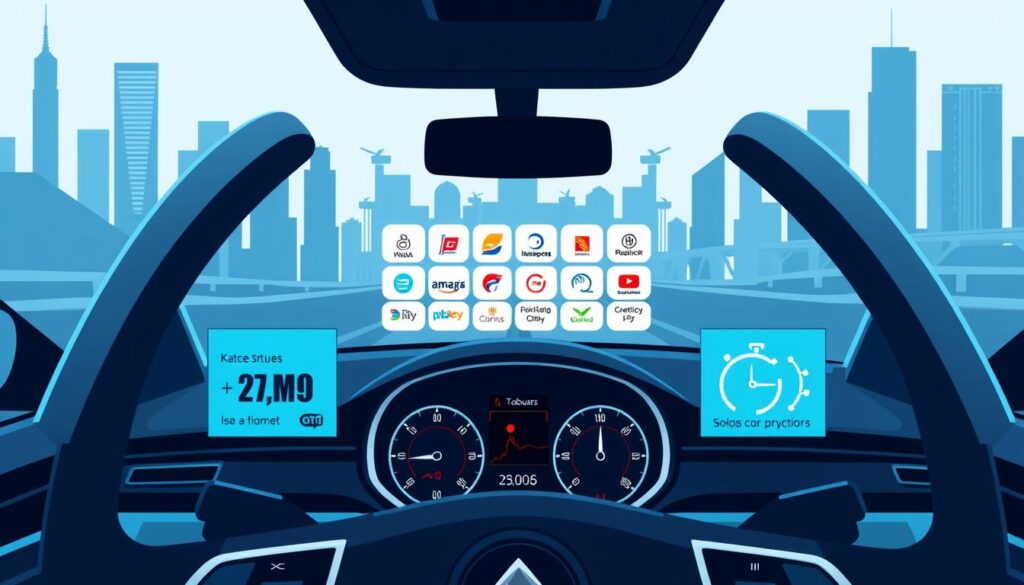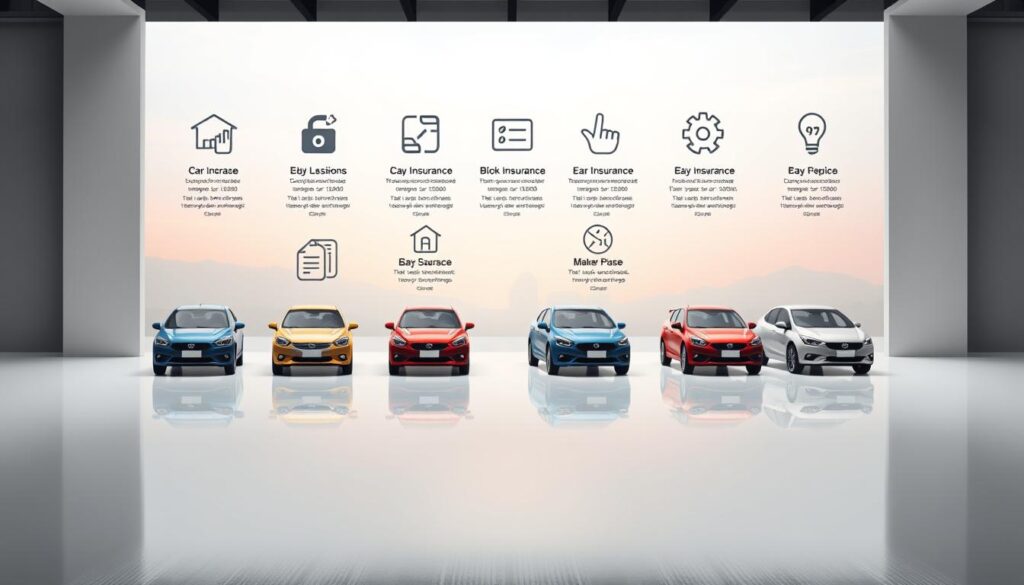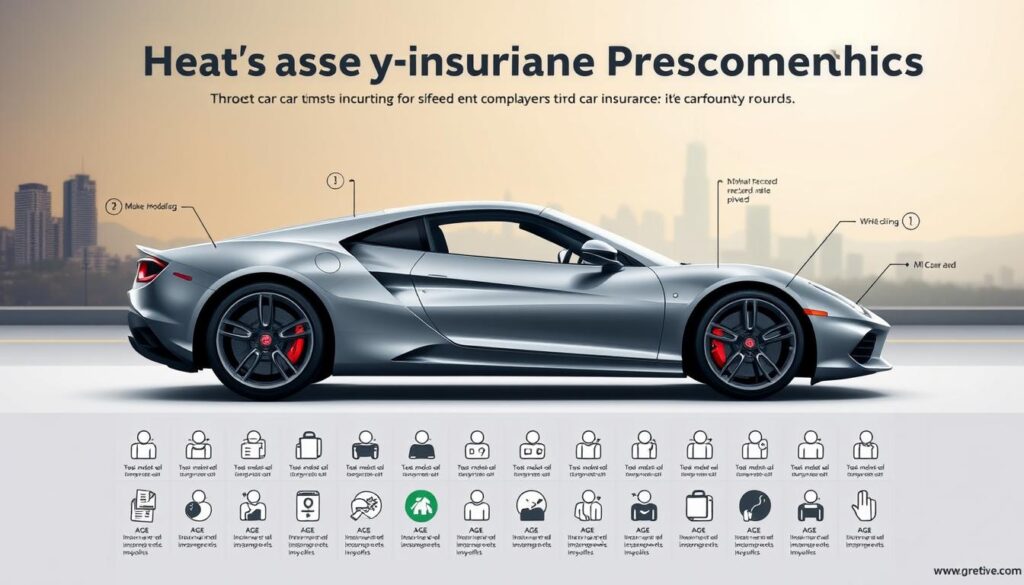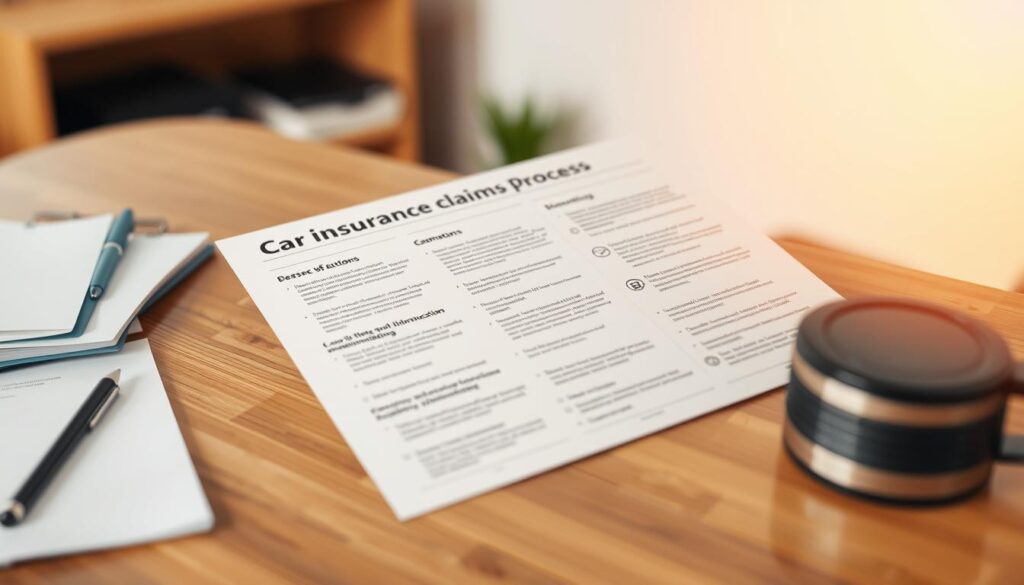Over 4.4 million people in Britain now work in the gig economy, representing a staggering 14% of the UK workforce. This rapidly expanding sector includes delivery drivers, rideshare operators, and freelance couriers who face unique challenges when securing proper protection for their vehicles.
Traditional car cover wasn’t designed with flexible work patterns in mind. Many workers find themselves paying for policies that don’t adequately cover their professional activities or paying more than necessary for protection they don’t need.
This comprehensive guide addresses the specific insurance needs of gig economy participants. We explore how to find suitable protection that adapts to variable work schedules while maintaining legal compliance on Britain’s roads.
Whether you’re a new driver building your first policy or an experienced operator seeking better rates, this guide provides actionable insights. You’ll learn about different policy types and strategies specifically tailored for flexible workers.
Understanding what constitutes good value protection in today’s market is essential. By comparing leading UK providers and the factors influencing premiums, you can make informed decisions that safeguard both your vehicle and livelihood.
Key Takeaways
- Gig economy workers require flexible cover that traditional policies often lack
- Understanding different policy types helps balance protection with budget constraints
- Legal compliance is essential for workers using their vehicles professionally
- Comparing providers can lead to significant savings on car insurance
- Variable work schedules demand adaptable insurance solutions
- Specific cover exists for delivery drivers and rideshare operators
- Regular policy reviews ensure continued value as work patterns change
Understanding the Gig Economy Insurance Landscape
Flexible workers navigating Britain’s roads encounter distinct insurance hurdles that traditional policies fail to address. The unique nature of gig work creates specific requirements that standard cover cannot accommodate.
Challenges Unique to Gig Economy Workers
Gig economy drivers face fluctuating work patterns that complicate vehicle usage classifications. Many providers historically viewed these workers as higher-risk, leading to elevated premiums.
The traditional annual policy model often proves unsuitable. Workers need adaptable cover that matches their variable income and schedule changes.

Proper vehicle classification remains crucial. Using your car for commercial purposes without correct cover can invalidate your policy entirely.
| Gig Economy Challenge | Traditional Insurance Limitation | Modern Solution |
|---|---|---|
| Fluctuating work hours | Fixed annual policies | Flexible monthly cover |
| Mixed personal/commercial use | Single usage category | Dual-purpose policies |
| Variable income patterns | Standard payment plans | Pay-as-you-go options |
| Multiple driving patterns | One-size-fits-all approach | Customisable add-ons |
The Evolution of Insurance for Freelancers and Contractors
Recent years have seen significant changes in how providers approach gig worker needs. The market now recognises this sector as a permanent workforce fixture.
Innovative companies offer specialised policies for delivery drivers and rideshare operators. Telematics-based cover and subscription models better align with flexible work requirements.
Legislative changes and increased competition have improved transparency. Workers now enjoy more tailored options that reflect their actual driving patterns.
What Is “Affordable Insurance” and Why It Matters
Finding the right vehicle protection involves more than just comparing price tags. For gig workers, true value means securing a policy that fits both their budget and their unique professional needs on the road.
Defining Affordable Insurance in Today’s Market
Cost-effective cover represents a smart balance. It is not about finding the absolute cheapest policy, but the one that offers the best value for your specific situation.
This could mean a comprehensive car insurance policy or a more basic third-party option. The right choice depends on your vehicle, work patterns, and financial comfort.

The real price of your policy includes more than the monthly premium. Consider excess fees, policy limits, and the potential financial risk of being under-protected.
Benefits for Gig Workers in the United Kingdom
For UK-based drivers, suitable cover is a legal and financial necessity. It protects your primary tool for earning money—your car—during both work and personal use.
Investing in proper protection can save you significant costs long-term. It helps avoid claim rejections and ensures you are never out of pocket after an incident.
Key benefits of a well-chosen policy include:
- Legal compliance for professional driving activities
- Financial security through add-ons like breakdown cover
- Potential savings via telematics or multi-vehicle policies
- Peace of mind knowing your livelihood is protected
Comparing Leading Insurance Providers in the UK
The British insurance market offers diverse options for gig economy drivers, with each provider bringing unique strengths to the table. Understanding these differences helps you select the right protection for your specific needs.

Highlights from Aviva Car Insurance
Aviva stands as a trusted provider with over a century of experience. Their car insurance options include comprehensive and third party, fire and theft cover.
The company boasts a strong 4.5/5 rating from 1,660 customer reviews. This demonstrates reliable service and high satisfaction levels.
Key benefits for gig workers include:
- Driving other cars cover for policyholders aged 25+
- Specialised electric vehicle protection
- Multi-car policies with 10% discounts
- Extensive repairer network handling 61,000 vehicles in 2024
Insights into Admiral and Other Market Players
Admirals offers 5-star Defaqto rated policies with flexible options. Their uninsured driver promise refunds your excess when an uninsured driver causes an accident.
Optional extras allow customisation to match professional requirements. These include breakdown cover and motor legal protection.
Veygo provides innovative short-term cover for variable work schedules. Their flexible approach suits drivers needing hourly or monthly protection.
When comparing providers, evaluate customer service quality and claims efficiency alongside price. Multi-vehicle discounts can deliver significant savings for gig workers operating several cars.
Tailouring Your Insurance Policy for Flexibility
The ability to personalise your vehicle protection has become essential for gig economy participants with unpredictable schedules. Modern providers now offer sophisticated customisation tools that transform standard policies into bespoke solutions.

Customisable Add-Ons and Options
Leading companies like Aviva display additional feature costs clearly during the quoting process. This transparency allows you to build protection around your actual needs.
Admiral provides valuable optional extras including:
- Breakdown cover with unlimited UK roadside assistance
- Personal injury protection extending to accidents in other vehicles
- Hire vehicle cover ensuring business continuity
- Motor legal protection for non-fault incidents
Adjusting Coverage to Fit Your Lifestyle
Veygo exemplifies modern flexibility with policies starting from one hour. Their monthly rolling subscriptions can be cancelled freely as work demands change.
Regular policy reviews help match your cover to current driving patterns. Scaling protection during busy periods optimises costs while maintaining adequate safety.
This adaptable approach ensures you pay only for the protection you genuinely require.
Insuring Your Vehicle: Options for Car Insurance
Vehicle owners face important decisions when choosing between different coverage options. Understanding the available levels of protection helps you select the right policy for your needs.

Comprehensive vs. Third Party, Fire and Theft Covers
Different types of car insurance offer varying degrees of protection. The choice depends on your vehicle’s value and your risk tolerance.
Comprehensive cover provides the highest level of protection. It includes accidental damage to your own vehicle alongside fire, theft, and third-party liabilities.
| Cover Type | Your Vehicle Protection | Third-Party Coverage | Best For |
|---|---|---|---|
| Comprehensive | Full protection including accident damage | Complete third-party cover | Essential income-generating vehicles |
| Third Party, Fire & Theft | Fire damage and theft only | Full third-party cover | Older vehicles with lower value |
| Third Party Only | No protection for your vehicle | Minimum legal requirements | Very low-value cars only |
Special Considerations for Electric and Hybrid Cars
Electric and hybrid vehicles require specific insurance considerations. Their higher value and specialised components need adequate protection.
Look for policies covering charging equipment and battery systems. Some providers offer emergency charging assistance as part of their comprehensive cover.
Verify that your policy accounts for the unique repair requirements of these vehicles. Proper protection ensures you avoid coverage gaps for expensive components.
Key Factors That Impact Your Premium Cost
Understanding the key elements that shape your premium is the first step towards managing your car insurance expenses effectively. Providers analyse specific details to assess the risk you present as a policyholder.

This assessment directly influences the final cost you pay. Knowing these factors allows you to make informed decisions.
Driver Profile and Experience
Your driver profile is a primary factor in premium calculations. Providers generally offer more favourable rates to older, more experienced drivers.
The number of years you’ve held your driving licence also plays a crucial role. Drivers with extensive experience are statistically less likely to be involved in an accident.
Your driving habits, such as annual mileage, are carefully considered. More time on the road increases accident exposure.
Location, Vehicle Type, and Previous Claims
Your geographic location significantly impacts costs. Companies analyse claims data for your postcode, including theft rates and accident frequency.
Vehicle type and its insurance group classification affect your premium substantially. Cars in higher groups often command higher prices.
Your claims history provides concrete evidence of your risk profile. A clean record can lead to significant savings over the years.
| Factor | Impact on Premium | Key Consideration |
|---|---|---|
| Driver Age & Experience | Higher for younger, less experienced drivers | Years with licence is critical |
| Vehicle Insurance Group | Increases with higher group number | Check your car’s group before buying |
| Claims History | Increases after an at-fault accident | Protect your no claims discount |
| Annual Mileage | Higher mileage typically means higher cost | Provide an accurate estimate |
When you request a quote, providers like Aviva require specific information. This includes your personal details, the type of cover you need, and any additional drivers.
Remember that a mandatory Insurance Premium Tax (IPT) of 12% is added by law to all premiums. This is separate from the insurer’s risk-based calculations.
Navigating the Claims Process with Confidence
When an unexpected incident occurs, knowing how to navigate the claims process can significantly reduce stress and uncertainty. Being prepared ensures you can act quickly and efficiently to resolve the situation.

Step-by-Step Guidance on Making a Claim
Start by reviewing your policy documentation thoroughly. Check what coverage you have and understand the excess you’ll need to pay. This preparation saves time when you contact your provider.
Gather all necessary details before making your claim. Have your policy number ready along with incident specifics like date, time, and location. Photographs of any damage provide valuable evidence.
Contact your insurer through their preferred channel. Admiral allows online claims via MyAccount, while Aviva offers phone support. Digital submission speeds up the process significantly.
Using approved repairers like Aviva’s network ensures guaranteed quality work. Choosing non-approved options may mean paying additional excess and losing courtesy car access.
Understanding your excess helps budget for any claim. This amount varies based on your policy type and vehicle. Some incidents may not affect your no claims discount.
Tips for Securing the Best Insurance Quote
The quest for the perfect insurance policy begins with understanding what information insurers require and how to present it effectively. Proper preparation ensures you receive accurate pricing that reflects your actual needs.
Before diving into specific strategies, gather essential documents. You’ll need your driving licence, vehicle registration, and mileage estimates ready.
Utilising Comparison Tools and Digital Applications
Modern technology simplifies the quote process significantly. Digital platforms allow you to compare multiple providers simultaneously.
Companies like Admiral offer mobile apps for instant quote management. Veygo’s digital application arranges short-term cover in minutes.
However, don’t rely solely on comparison sites. Some providers offer exclusive direct discounts. Always check insurer websites directly for the best car insurance deals.
Smart Strategies for Reducing Excess Costs
Managing your excess effectively can lower your premium substantially. Consider accepting a higher voluntary excess if you can afford the potential payout.
Timing also impacts your final price. Research shows purchasing about three weeks before coverage starts typically yields better rates.
| Strategy | Potential Savings | Considerations |
|---|---|---|
| Higher voluntary excess | 10-20% premium reduction | Ensure you can afford the payout |
| Three-week advance purchase | 5-15% better rates | Plan your renewal timeline |
| Accurate mileage estimates | Avoids premium overpayment | Review actual driving patterns |
| Vehicle insurance group selection | Significant long-term savings | Choose lower-group cars when possible |
Make sure to provide completely accurate information when obtaining quotes. Full disclosure prevents policy issues later.
Leveraging Customer Reviews and Ratings
Real-world experiences shared by other drivers offer invaluable insights beyond marketing claims. This feedback reveals how companies actually perform when you need them most.
Interpreting TrustScore and Customer Feedback
Aviva’s car insurance demonstrates strong performance with a 4.5/5 rating from 1,660 reviews. Their comprehensive cover also earned a 5-Star Defaqto rating through expert assessment.
Veygo customers praise the flexibility and straightforward pricing. Many highlight the ease of securing cover for specific days or weeks.
When examining reviews, look for consistent patterns across multiple comments. This approach provides more reliable information than focusing on single experiences.
| Rating Type | Source | Key Insight |
|---|---|---|
| TrustScore | Customer Reviews | Reflects real user satisfaction |
| Defaqto Star Rating | Independent Experts | Assesses policy comprehensiveness |
| Customer Quotes | Direct Feedback | Reveals specific user experiences |
| Review Patterns | Multiple Sources | Identifies consistent strengths/weaknesses |
This combination of quantitative scores and qualitative feedback helps you make informed decisions about your protection needs.
Final Thoughts on Securing Affordable Insurance for Gig Workers
For those earning a living through flexible driving work, selecting the right vehicle policy is crucial for business continuity. The correct level of cover protects your primary income source while keeping costs manageable. Regular reviews ensure your protection evolves with changing work patterns.
Building a relationship with a reputable provider often yields better terms over time. Maintaining a clean driving record allows you to accumulate valuable no claims discounts. This strategic approach helps manage costs while ensuring adequate protection for your car.
New drivers should consider specialist options that accommodate their experience level. As your skills develop, you can transition to more comprehensive policies. Always make sure your cover matches your actual vehicle use to avoid coverage gaps.
The road to finding suitable protection involves honest assessment of your needs. Invest time in comparing options to secure value that safeguards your livelihood. This careful approach ensures your policy provides the right balance of protection and affordability.










